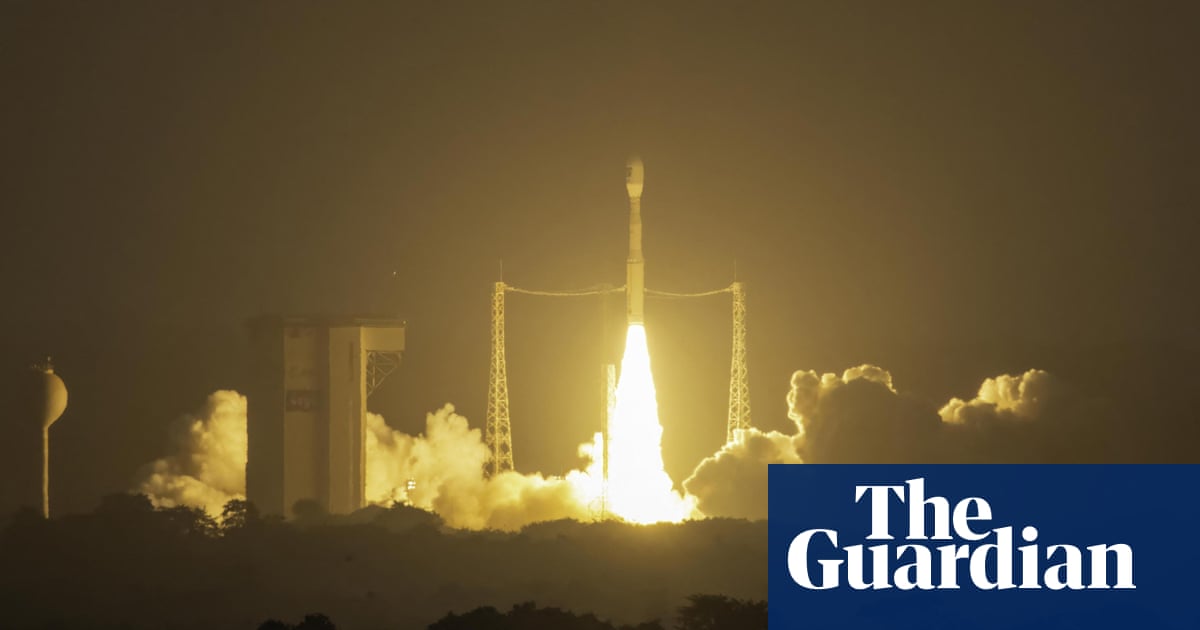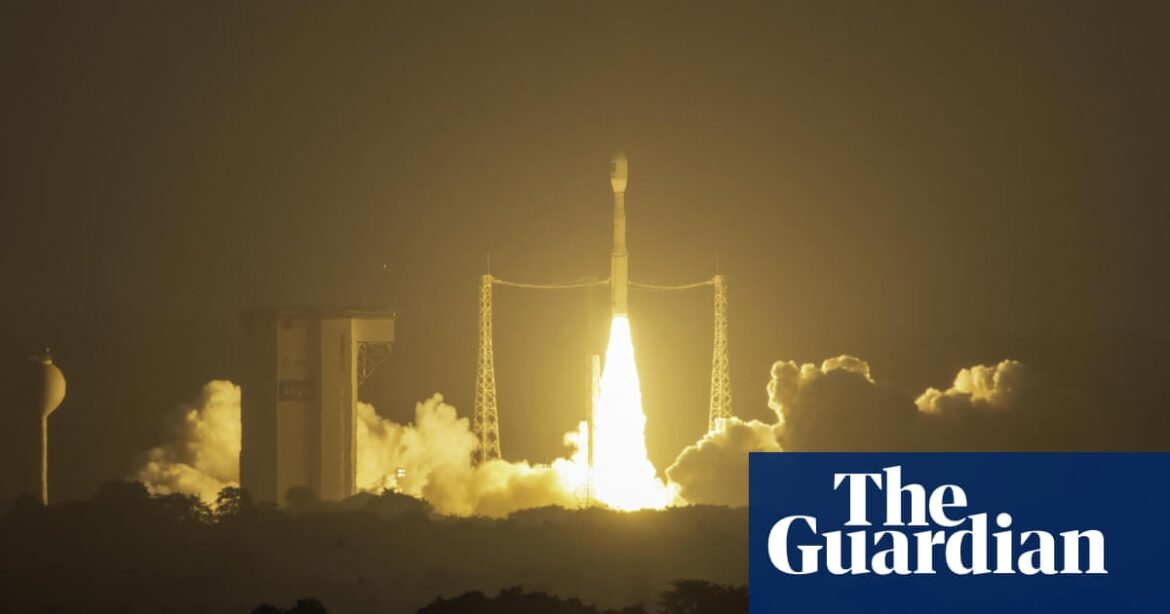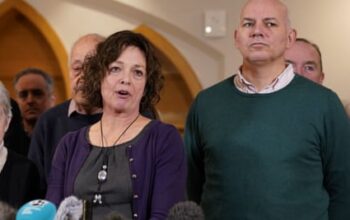
The EU has launched an ambitious €10bn (£8.3bn) space programme with a constellation of 290 satellites to rival Elon Musk’s Starlink, further widening the post-Brexit security gap with the UK.
The constellation is intended to ensure the bloc’s security for governments and armies amid increasing global concerns over cybersecurity.
Officials said the UK had not made any request to be part of the Iris2 project, which will offer sublease communications capacity for commercial use as an alternative to Musk’s Starlink network.
“It is a significant step towards Europe’s sovereignty and secure connectivity,” an EU statement said.
Technological advances mean the network of high- and lower-powered satellites will provide the equivalent of 1,000 satellites in a “mega constellation” similar to Starlink.
Europe has been served by a combination of state-licensed satellite networks providing coverage from Ireland to eastern Europe. The networks enable TV and internet as well as defence, weather and border surveillance functions.
Before Brexit, the UK was part of an EU space programme, with British armed forces due to have access to the Galileo satellite network from next year.
However the British government severed ties with the programme and concluded during Brexit negotiations that it would be in the UK’s interests to develop a rival to Galileo involving two satellites.
The UK network includes Tyche, the Earth-imaging military satellite which was launched in August. Last month the government said a new satellite, Juno, would be launched in 2027 to “capture daytime images of the Earth’s surface” thereby “strengthening the UK’s intelligence, surveillance and reconnaissance” capabilities.
Asked if the UK would be involved in the Iris2 programme, given its common interests in defence and security and Keir Starmer’s pledge to reset relations with the EU, a senior official said there had been no such request.
“At this stage we have not received any sign or manifestation of interest from our UK partners,” they added.
Under EU rules, a third country can participate by having a commercial agreement for surveillance or cybersecurity services with any of the three operators of the satellites. The operators are Eutelsat, the European-wide network of former telecommunications-only satellites; SES, the Luxembourg-owned satellite network that delivers Sky TV and other TV services to the UK; and Hispasat, the Spanish satellite operator.
Third party countries are also permitted to opt to become a “full member” of the programme, contributing funding.
Iris2 is the EU’s third flagship satellite programme, designed to address long-term challenges, deepened in the last three years by Russia’s full-scale invasion of Ukraine and alleged cyberattacks in several European countries.
It will involve two types of satellites that operate in medium Earth orbit and low Earth orbit.
Under the 12-year programme the first communications, both government and commercial, are expected to begin in 2030.
Key companies involved in the programme include all the top European, but not British, space industry players, including Airbus Defence and Space, Deutsche Telekom, France’s Thales Alenia Space and Italy’s Telespazio.
The UK government has been approached for comment.
Source: theguardian.com



